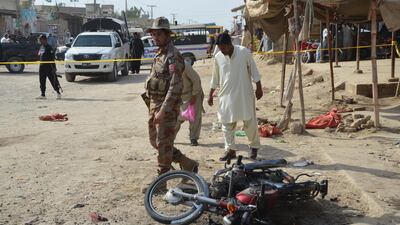In the province of Balochistan, waves of insurgency speak to the challenges facing successive administrations in tackling militancy in Pakistan. In the latest attack, three Balochistan Liberation Army gunmen stormed a five-star hotel in the port city of Gwadar, killing a guard. It is only thanks to Ramadan that the hotel was largely empty, otherwise the death count could have been far higher. But this is still a moment for pause, as we consider the desires of some to visit untold harm on innocent people during the holy month.
In a heavily militarised province bordering Afghanistan and Iran, where different nationalist factions fight one another and the Pakistani government for greater authority, often to bloody effect, this is a highly symbolic attack. Balochistan is rich in resources but vastly underdeveloped and remains Pakistan’s poorest region, prompting much discontent and resentment against Islamabad. Much of that grievance is now being directed towards the Pakistani government’s partnership with China. The strategic port of Gwadar on the Arabian Sea is a jewel of China’s Belt and Road Initiative and the centrepiece of the China-Pakistan Economic Corridor. China will manage Gwadar for 40 years and pledge $60 billion, one of just a number of root-and-branch investments that will make Gwadar one of Pakistan’s fastest developing cities, but there remains a level of mistrust among locals about the benefit to them, some of it fuelled by extremists. Although Beijing will enjoy many of the fruits of Gwadar’s stunning transformation, the Pakistani people are on course to benefit enormously from this development, in employment opportunities, trade and infrastructure.
The terrorist threat posed by Baloch militants – including fatal attacks by the Balochistan Liberation Army on the Chinese consulate in Karachi and on buses carrying Chinese workers last year – speaks to an atmosphere of chronic insecurity. But extremists’ attempts to strike at the heart of Pakistan’s economic future will only hurt the Baloch people and must not be allowed to succeed. The threat of militancy is not only a danger to the progress of CPEC; it threatens the very livelihoods of the Baloch. Beijing and Islamabad must inform and reassure the Baloch of the growth and potential that Chinese investment will bring. Balochistan must also reap proper benefits for projects on its soil. There have been complaints from fishermen that bulldozing work has displaced them. Clearly, the voices of the community need to be heard and their concerns incorporated into the project.
CPEC has the power to transform Balochistan but it cannot do so in a culture of insecurity and violence. Instead, the people of Balochistan must be brought along with it and Pakistani authorities must find a way to stamp out the extremism that has long prohibited the region from reaching its potential.

